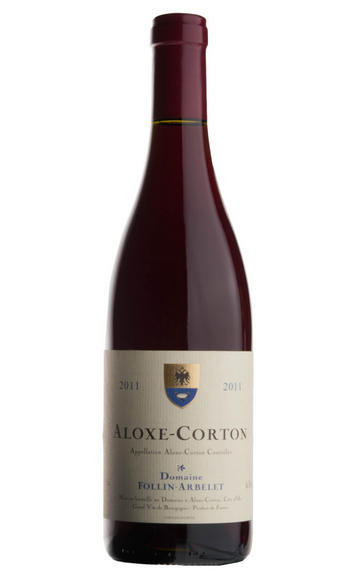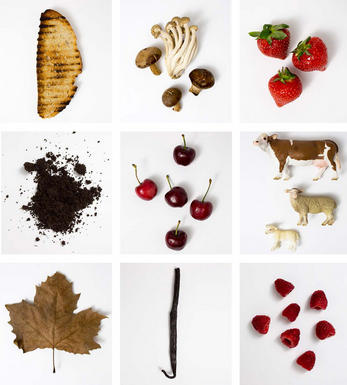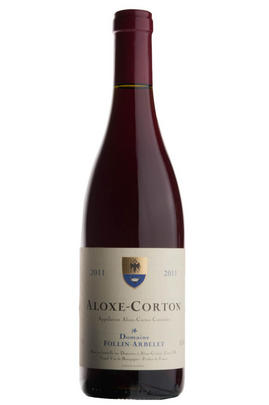
About this WINE

Domaine Follin-Arbelet
Franck’s ancestors owned vineyards in Aloxe-Corton, which they sold off towards the end of the 19th century.
As a child, he spent holidays in the village, working part-time in the vineyards and, in due course, marrying a local girl, Christine. Her family had some vines – enough for Franck to set up as a vigneron in 1993, subsequently adding further vines through rental agreements. In 2017, Franck was joined at the domaine by his son, Simon.
In the vineyard
Franck favours the most simple and natural form of farming possible. The grapes are entirely destemmed, vinified in wooden vats for about two weeks. The wines are aged for 18 months in barrel, initially with 20 to 25 per cent new wood before racking into older casks after 12 months.

Pinot Noir
Pinot Noir is probably the most frustrating, and at times infuriating, wine grape in the world. However when it is successful, it can produce some of the most sublime wines known to man. This thin-skinned grape which grows in small, tight bunches performs well on well-drained, deepish limestone based subsoils as are found on Burgundy's Côte d'Or.
Pinot Noir is more susceptible than other varieties to over cropping - concentration and varietal character disappear rapidly if yields are excessive and yields as little as 25hl/ha are the norm for some climats of the Côte d`Or.
Because of the thinness of the skins, Pinot Noir wines are lighter in colour, body and tannins. However the best wines have grip, complexity and an intensity of fruit seldom found in wine from other grapes. Young Pinot Noir can smell almost sweet, redolent with freshly crushed raspberries, cherries and redcurrants. When mature, the best wines develop a sensuous, silky mouth feel with the fruit flavours deepening and gamey "sous-bois" nuances emerging.
The best examples are still found in Burgundy, although Pinot Noir`s key role in Champagne should not be forgotten. It is grown throughout the world with notable success in the Carneros and Russian River Valley districts of California, and the Martinborough and Central Otago regions of New Zealand.



Buying options
Add to wishlist
Description
Domaine Follin-Arbelet boasts the deepest, coldest and, surely, the most beautiful cellars in the village of Aloxe-Corton. Fermentations here are unhurried, using only indigenous yeasts. Franck-Follin, in charge since 1993, neither fines nor filters his wines, aiming to achieve the purest possible expression of their exceptional terroir.
Light ruby in colour with a pretty, delicate nose of dried berries, earth and floral notes. Chewy tannins and a firm backbone of acidity make this extremely appetising. The right dish – I’m thinking roast pheasant – will render it more pliant and expressive, and bring its class into relief. Drink now to 2018.
Will Heslop - Wine Buyer, March 2017
wine at a glance
Delivery and quality guarantee